The Mario & Alma Pastega Awards
About the Pastega Award
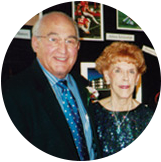 The Mario & Alma Pastega Awards represent Western Oregon University’s highest recognition for faculty and staff excellence. Two awards are given each year to faculty: The Pastega Award for Excellence in Scholarship recognizes significant and enduring scholarly or creative achievement; the Pastega Award for Excellence in Teaching honors teaching that engages, inspires and educates students in the greatest possible learning. The Pastega Staff Excellence Award recognizes classified or administrative staff members who demonstrate exceptional service to the university. Each award provides a $1,000 honorarium.
The Mario & Alma Pastega Awards represent Western Oregon University’s highest recognition for faculty and staff excellence. Two awards are given each year to faculty: The Pastega Award for Excellence in Scholarship recognizes significant and enduring scholarly or creative achievement; the Pastega Award for Excellence in Teaching honors teaching that engages, inspires and educates students in the greatest possible learning. The Pastega Staff Excellence Award recognizes classified or administrative staff members who demonstrate exceptional service to the university. Each award provides a $1,000 honorarium.
History of the Awards
Beginning in 1985, three awards for scholarship, teaching and staff excellence were created through generous annual gifts from Mario Pastega (1916-2012), an Oregon soft drink bottler and one the state’s leading philanthropists and benefactors of education, serving as a trustee on the foundation boards of both Oregon State University and Western Oregon University. In 1986, the first paired Pastega-funded awards in scholarship and teaching went to philosophy professor, Dale Cannon, for his work in philosophy for children, and Pat Gallagher, professor of education for her work in early childhood literature. The first recipient of the staff excellence award in 1985 was Forrest Hiner, lead painter with the Physical Plant. In 1997, Mario Pastega and his wife, Alma, donated an additional $40,000, matched by the Oregon State System of Higher Education, to permanently endow the three annual awards in their name: the Pastega Award for Excellence in Scholarship, the Pastega Award for Excellence in Teaching, and the Pastega Staff Excellence Award.
Award process
Award recipients are honored at a ceremony in May, during which they present their work. Candidates for all Pastega Awards are considered through nominations by colleagues, students, and coworkers. The faculty award recipients are selected by a committee comprised of past Pastega recipients and one student appointed by student government. Final selections are subject to approval by the university president. The Pastega Staff Excellence Award is coordinated through Human Resources and a committee of past staff award recipients who recommend three candidates to the university president for final selection.
Info for current nominees
2025 Winners
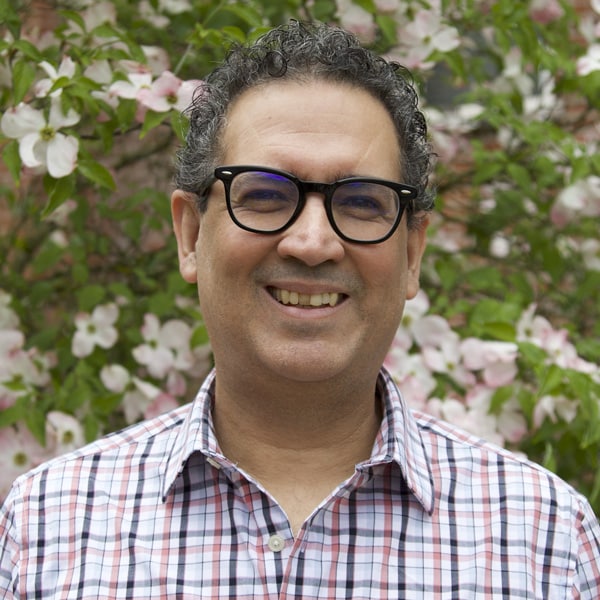
Excellence in Scholarship Award
Jaime Marroquín, Ph.D.
The Mario and Alma Pastega Excellence in Scholarship Award recognizes significant and enduring scholarly or creative achievement.
Jaime Marroquín, Ph.D., Professor of Spanish, is the 2025 recipient of the Mario and Alma Pastega Award for Excellence in Scholarship.
...read more
Dr. Marroquín has been a professor of Spanish at Western since 2017. He is a leading scholar in his field, and his work has been recognized by his colleagues and selected for prestigious external funding from the NEH and Stanford Humanities Center. He’s authored numerous publications, including single-author monographs and edited volumes. His work on translations of naturalist knowledge is important for histories of science and technology, colonial history, and global history.
Originally from Mexico City, Dr. Marroquín obtained his P.h.D. and master’s degree in Hispanic Literature from the University of Texas at Austin. He then spent seven years as Assistant Professor of Spanish at George Washington University before accepting an Assistant Professor of Spanish position at Western, now a full Professor of Spanish. When applying to Western, Dr. Marroquín thought it could be a good fit, as it would allow him to continue his research and teaching career while learning and participating in the cutting-edge bilingual and multicultural education that was being developed.
Dr. Marroquín’s publishing output is on par with or even greater than a faculty member at an R1 university, which is astounding. Since receiving tenure, he has produced three major publications with prestigious university presses: Historia Mexicana [Tovar Codex], co-authored with José Luis Nogales (Forthcoming, 2025), Los saberes jesuitas en la primera globalización (siglos XVI-XVIII), co-edited with Angélica Morales and Cynthia Radding (UNAM/Siglo XXI, 2022) Translating Nature: Cross-cultural Histories of Early Modern Science, co-edited with Ralph Bauer (University of Pennsylvania Press, 2019). These significant works, coupled with his recent fellowships—a Stanford Humanities Center External Fellowship and a Fulbright Award (which he declined to accept the Stanford fellowship)—have enhanced Western’s reputation and positioned the Spanish program as a leader in Hispanic Studies. His academic achievements bring national and international recognition to Western, underscoring the strength and prestige of the Spanish program.
He is currently working on a new monograph, Translation and Doctrine: Natural Science and the Indies, which explores the role of local knowledge in the development of modern natural science.
In all of his research, Dr. Marroquín emphasizes that the production of modern knowledge has been a collective global endeavor and not, as it is often believed, the exclusive result of the exceptional effort of a handful of learned individuals. His research repeatedly demonstrates that local individuals from all over the world have made and continue to make significant contributions to science, knowledge, and their communities. This idea informs his teaching and his classes.
Outside of the university, Dr. Marroquín enjoys working in his garden and spending time with his wife, Alejandra, his daughters Julia and Vera, and his dog, Luna.
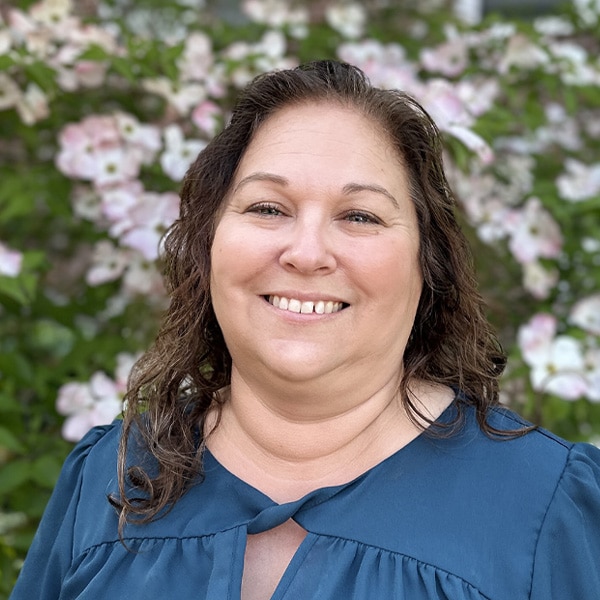
Excellence in Service Award
Camila Gabaldón
The Mario and Alma Pastega Excellence in Service Award honors a full time faculty member who demonstrates exceptional service to the university.
Camila Gabaldón, Systems & Collection Development Librarian, is the 2025 recipient of the Mario and Alma Pastega Award for Excellence in Service.
...read more
Gabaldón has served Western for 23 years, starting as Collection Development Librarian, and currently serving in a few different roles as Systems Librarian and Academic Web Applications Developer. She is also a full professor in the library.
Gabaldón holds a Master of Science in Education from Western, a Master of Library Science from Emporia State University, and a Bachelor of Arts in Environmental Science from Willamette University. From the moment she started working at Western, she knew this was the place where she wanted to advance her career. She shares that she grew up near Western and used to study at the library during high school, and when a position in the library opened up, she was thrilled to have the opportunity to work here.
Gabaldón has consistently exceeded expectations in her service to the university. Since joining Western, she has actively participated in the Faculty Senate, curriculum committees, the website team, the University Technology Advisory Committee, and the strategic planning committee. Over 23 years, she has dedicated significant effort to supporting colleagues through various initiatives, regularly volunteering for committees, chairing the Curriculum and General Education committees, and serving on the Faculty Senate Executive Committee.
One of her most impactful contributions has been the development and maintenance of online processes and forms that streamline critical academic and administrative workflows. These systems have efficiently processed thousands of requests, greatly enhancing efficiency for faculty, staff, and students. She has dedicated hundreds, if not thousands, of hours to ensure these processes are effective and adapt to institutional needs. She also helped fill in as the web manager while there was a vacancy, a critical role in the business functions of the university.
Gabaldón cites a favorite quote from Frances Hesselbein, former CEO of the Girl Scouts: “To serve is to live.” She believes this succinctly captures her philosophy of service. Gabaldón emphasizes the importance of not only fulfilling her responsibilities but also enhancing the environment so that those around her can contribute effectively. She notes that while service may often go unnoticed, it is fundamental to our roles as educators and community members. “Like the unseen beams in our walls, service supports everything we do; without it, our efforts would falter.” Gabaldón currently lives in Monmouth with her husband, two teenagers, and a dog and cat.
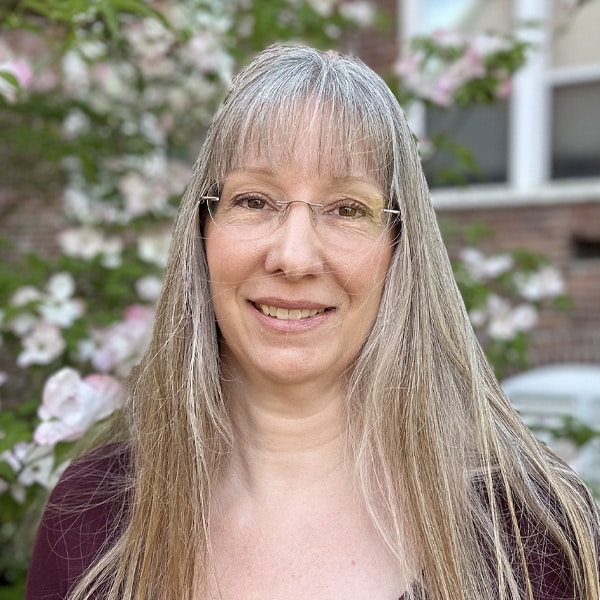
Excellence in Teaching Award
Amy Dawson, Ph.D.
The Mario and Alma Pastega Excellence in Teaching Award honors a full-time faculty member who demonstrates excellence in teaching and relationships with students, both in and out of the classroom.
Amy Dawson, Ph.D., NTT Assistant Professor of Biology, is the 2025 Mario and Alma Pastega Award for Excellence in Teaching recipient.
...read more
Dr. Dawson has been a valued member of the Western faculty since 2011 with a distinct record of classroom excellence, teaching over 35 distinct courses in the Biology Department, ranging from human anatomy and physiology to ornithology to dinosaurs and vertebrate biology. She has actively contributed to numerous university committees, established student biology volunteer programs, and co-coordinated the Faculty Success Ambassador program, among other initiatives. Dr. Dawson has been nominated for the Pastega Award for Excellence in Teaching twice before, and this year, she proudly received this prestigious honor.
Before joining Western, Dr. Dawson taught at Oregon State University in the Department of Integrative Biology, where she also earned her Ph.D. in Zoology. Her research focuses on the functional morphology and physiology of archosaurs (dinosaurs, crocodilians, and birds), specifically focusing on pulmonary ventilation and endothermy.
She shares that when she approaches her teaching and her interactions with students, she sees them as individuals, each with their own unique experiences, gifts, talents, preferred learning styles, liabilities, and challenges. She adds that “It is easy to lose sight of the fact that students are often facing huge challenges, often daily. We are all on this journey through life together, and in my opinion, sharing experiences in teaching and learning with empathy and compassion, which enriches life deeply.” Dr. Dawson considers it an honor and a privilege to have had the opportunity to know and teach her students and travel this journey together, and adds that the experience of knowing them over the years has been a gift to her.
A nominator shares that Dr. Dawson is a remarkable NTT with a “will do” attitude who is capable and willing to teach various general education and major courses on short notice, often at significant personal disruption. Her attitude is always centered on “students first” and how she can be of value. She cares about her students and has devoted time to assist colleagues with pedagogical approaches to better meet students where they are.
Outside of teaching, she loves spending time with her husband, Jim Dawson, whom she met at WOU, and their children. They thoroughly enjoy being out in nature and with their pets, which include a yellow lab, freshwater fish, chickens, as well as a hawk and two falcons. Dr. Dawson is an avid reader on a variety of topics, enjoys cooking, good food, music, movies, and art.
Dr. Dawson has been a valued member of the Western faculty since 2011 with a distinct record of classroom excellence, teaching over 35 distinct courses in the Biology Department, ranging from human anatomy and physiology to ornithology to dinosaurs and vertebrate biology. She has actively contributed to numerous university committees, established student biology volunteer programs, and co-coordinated the Faculty Success Ambassador program, among other initiatives. Dr. Dawson has been nominated for the Pastega Award for Excellence in Teaching twice before, and this year, she proudly received this prestigious honor.
Before joining Western, Dr. Dawson taught at Oregon State University in the Department of Integrative Biology, where she also earned her Ph.D. in Zoology. Her research focuses on the functional morphology and physiology of archosaurs (dinosaurs, crocodilians, and birds), specifically focusing on pulmonary ventilation and endothermy.
She shares that when she approaches her teaching and her interactions with students, she sees them as individuals, each with their own unique experiences, gifts, talents, preferred learning styles, liabilities, and challenges. She adds that “It is easy to lose sight of the fact that students are often facing huge challenges, often daily. We are all on this journey through life together, and in my opinion, sharing experiences in teaching and learning with empathy and compassion, which enriches life deeply.” Dr. Dawson considers it an honor and a privilege to have had the opportunity to know and teach her students and travel this journey together, and adds that the experience of knowing them over the years has been a gift to her.
A nominator shares that Dr. Dawson is a remarkable NTT with a “will do” attitude who is capable and willing to teach various general education and major courses on short notice, often at significant personal disruption. Her attitude is always centered on “students first” and how she can be of value. She cares about her students and has devoted time to assist colleagues with pedagogical approaches to better meet students where they are.
Outside of teaching, she loves spending time with her husband, Jim Dawson, whom she met at WOU, and their children. They thoroughly enjoy being out in nature and with their pets, which include a yellow lab, freshwater fish, chickens, as well as a hawk and two falcons. Dr. Dawson is an avid reader on a variety of topics, enjoys cooking, good food, music, movies, and art.
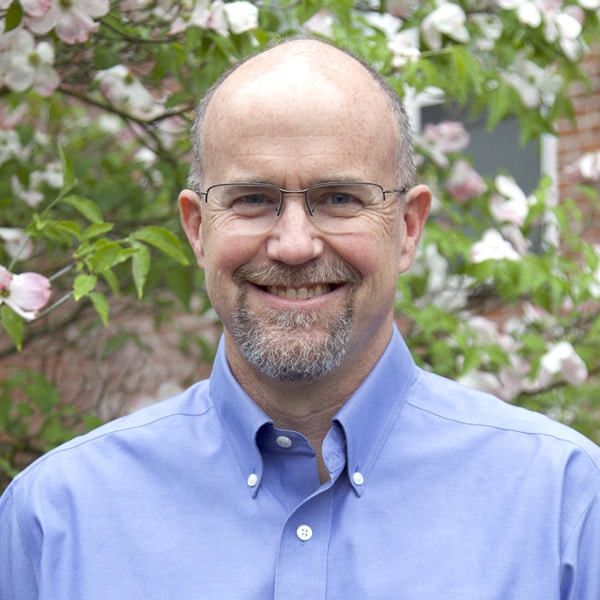
Excellence in Teaching Award
Mike LeMaster, Ph.D.
The Mario and Alma Pastega Excellence in Teaching Award honors a full-time faculty member who demonstrates excellence in teaching and relationships with students, both in and out of the classroom.
Mike LeMaster, Ph.D., Professor of Biology, is the 2025 Mario and Alma Pastega Award for Excellence in Teaching recipient.
...read more
Dr. LeMaster has dedicated 24 years to educating students at Western in the Biology department. Before joining Western, he taught at Oregon State University, where he earned his Ph.D. in Zoology. Throughout his career, he has received numerous honors, including the Outstanding Faculty Advisor Award from the National Academic Advising Association, Faculty Academic Advisor of the Year from Western, and now the prestigious Pastega Award for Excellence in Teaching.
In addition to these accolades, Dr. LeMaster has secured various teaching and research grants, presented his research at national and international conferences, and published scholarly articles in the field of chemical ecology.
One nominator noted that Dr. LeMaster is their favorite professor due to his infectious enthusiasm for teaching, which inspires genuine excitement about the material among his students. His engaging teaching style, commitment to student learning, and availability for meetings outside of class reflect his dedication to effective and thoughtful instruction.
Dr. LeMaster adds that it is truly an honor to receive this recognition. “This would not have been possible without the dedicated students I interact with daily who challenge me to continually evolve as an educator – invariably, I learn as much from them as they from me.” He adds, “There is no greater thrill than watching these scholars mature into independent thinkers, succeeding not only in their academics but also developing into thoughtful, engaged individuals with the skills necessary to flourish in their future endeavors.”
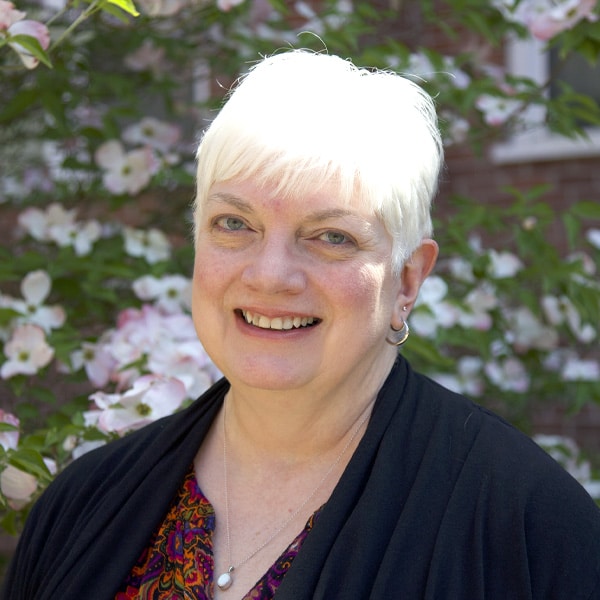
Staff Excellence Award
Cara Groshong
The Mario and Alma Pastega Staff Excellence Award honors a classified or administrative staff member who demonstrates exceptional service to the university.
Cara Groshong, Operations and Finance Director for the WOU Foundation, is the 2025 recipient of the Mario and Alma Pastega Staff Excellence Award.
...read more
Born and raised in Stayton, Oregon, Cara Groshong graduated from Stayton High School, taking every business and accounting class available along the way. From the start, she had a clear intention to pursue a degree in accounting. As the first in her family to attend college, she navigated this journey independently while working. She began at Chemeketa Community College and later transferred to Linn-Benton Community College, earning an associate degree in business administration and accounting.
Groshong’s first accounting position was at Freedom Federal Savings & Loan in Corvallis, where she experienced the savings and loan crisis of the 1980s when the bank was unexpectedly placed under lockdown. Over the next 12 years, she worked for various companies, including managing a bookkeeping business.
Her connection with Western began in 1997 when it was still WOSC, starting as a part-time accountant for the Advancement and Foundation office, which quickly became a full-time role due to the Foundation’s rapid growth. By 2008, she was promoted to Business Operations and Finance Director, providing financial oversight as the Foundation’s assets grew from under $5 million to over $33 million.
One of the rewarding aspects of working at Western has been the opportunity for her to mentor student workers, many of whom have gone on to successful careers and achievements. Strong connections have been maintained with several alumni, including those who have become the Payroll Director at Western, serve on the Foundation Board, and excel in the private sector.
Married for 37 years to Jason Groshong, they have one son, Dominic, who proudly graduated from Western with a bachelor’s degree in computer science in 2019, becoming the first-generation graduate in the family.
Mario and Alma Pastega
Faculty Excellence Awards Committee
Earlene Camarillo
Associate Professor of Politics, Policy, and Administration
Brooke Dolenc Nott
Assistant Professor of Psychological Sciences
Patricia Goldsworthy
Professor of History
Melanie Landon-Hays
Professor of Literacy, Director of General Education & Student Transitions
Isidore Lobnibe
Professor of Anthropology
Misty Weitzel
Professor of Criminal Justice Sciences
Mario and Alma Pastega
Staff Excellence Award Committee
Tina Fuchs
Vice President for Student Affairs
Anna Hernadez Hunter
Director, Multicultural Student Services & Programs
Lori Pagel
Library Technician, Hamersly Library
Sharyne Ryals
Administrative Program Assistant, Social Science Division
Nathan Sauer
Customer Services and Support Manager, University Computing Solutions
LouAnn Vickers
Senior Executive Assistant to the President
Past Pastega Award Recipients
Year |
Scholarship |
Service |
Staff |
Teaching |
| 2024 | Patricia Goldsworthy-Bishop | Earlene Camarillo | LouAnn Vickers | Brooke Dolenc Nott |
| 2023 | Isidore Lobnibe | Leigh Graziano | Rosario Peralta-Cortez | Misty Weitzel |
| 2022 | Gareth R. Hopkins | Breeann Flesch | Allen Risen | Erin Baumgartner |
| 2021 | Cornelia Paraskevas | Melanie Landon-Hays | Debbie Braun | Jaime Cloud |
| 2020 | Kenneth Carano | Cindy Ryan | Susan Griffin | Kristin Latham-Scott |
| 2019 | Rachel Harrington | Anna Hernandez-Hunter | Scott Beaver | |
| 2018 | Marie LeJeune | Jeanie Stüntzner | Peter Callero | |
| 2017 | Eliot Dickinson | Bruce Tuma | Vivian Djokotoe | |
| 2016 | Darryl Thomas | Sharyne Ryals | Cheryl Beaver | |
| 2015 | Kevin Walczyk | Kellen Hendrickson | Maureen Dolan | |
| 2014 | David Doellinger | Sue Thompson | Katherine Schmidt | |
| 2013 | Tom Bergeron | Linda Kunze Jake Whisenhunt |
Julia Smith | |
| 2012 | Henry Hughes | Kathy Hill | Maria Dantas-Whitney | |
| 2011 | Kim Jensen | Nathan Sauer | Chloe Hughes | |
| 2010 | Mark Girod | Ann Barton-Brown | Karie Mize | |
| 2009 | Henry Bersani | Jon Tucker | Jessica Henderson | |
| 2008 | Marita Cardinal | Teresa Hutchinson | Kit Andrews | |
| 2007 | Gavin Keulks | Alice Sprague | Dean Braa | |
| 2006 | Eduardo Gonzalez-Viana | Lori Pagel | Sharon Oberst | |
| 2005 | Rob Winningham | John Henslee | Diane Baxter | |
| 2004 | Lonnie Guralnick | Twila Domine | Martha Sargent | |
| 2003 | Sarah Boomer | Patrick Moser | Lowell Spring | |
| 2002 | Richard Davis | Jeanne Deane | Kimberly Jensen | |
| 2001 | Victor Savicki | Gary Jensen | Jerry Braza | |
| 2000 | H. Del Schalock Ed Dover |
Rudolfo Rodriguez | Curtis Yehnert | |
| 1999 | Marion Schrock | Tina Fuchs | Kevin Walzyk | |
| 1998 | Dennis Eddings | Rick DeMars | Denis Moran | |
| 1997 | Kim Hoffman | Don Boderman | Ray Brodersen | |
| 1996 | Peter Callero | Martha Smith | George Cabrera | |
| 1995 | Thomas Ferte | Darin Silbernagel | Sandra Gish | |
| 1994 | Richard Meyer | Randy McCauley | Joe Soldati | |
| 1993 | Diane Baxter | Ligoy Gamaney | Gary Huxford | |
| 1992 | Narasingha Sil | Barbara Lass | Ajmer Singh Ray Broderson |
|
| 1991 | Robert R. Ayres Eric J. Cooley |
Larry Spani | Cornelia Paraskevas | |
| 1990 | Ross R. Cotroneco | Mona K-Hinds | Erhard Dormund | |
| 1989 | Kenneth Holmes | Jill Summers Margaret Manoogian-O’Dell |
Lewis Pennock | |
| 1988 | David McCorkle | Dori Beeks | Roshani Shay | |
| 1987 | Donald H. White | Betty Hoyt | Bonnie Staebler | |
| 1986 | Dale W Cannon | Neal Werner | Pat Gallagher | |
| 1985 | James T Mattingly | Forrest Hiner | ||
| 1984 | Neal R Bandick | |||
| 1983 | A. Laurence Lyon Lloyd T. Hansen |
|||
| 1982 | C. David Jennings | |||
| 1981 | Ruth Million | |||
| 1980 | Erhard Dormund | |||
| 1979 | J. J. Morris Johnson |

